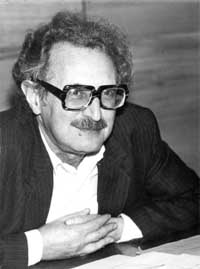A Quote by Benjamin Franklin
Evils come not, then our fears are vain; And if they do fear but augments the pain.
Related Quotes
How vain are our fears! I thought to myself. Sometimes we fear that which our opponent (or fate) had never even considered! After this, then, is it any longer worthwhile to rack one's brain to find new ghosts to fear? No, indeed: All hail optimism! - upon playing Hermanis Mattison after he overlooked an unusual knight manouevre.
Fear keeps us rooted in the past. Fear of the unknown, fear of abandonment, fear of rejection, fear of not having enough, fear of not being enough, fear of the future-all these fears and more keep us trapped, repeating the same old patterns and making the same choices over and over again. Fear prevents us from moving outside the comfort-or even the familiar discomfort-of what we know. It's nearly impossible to achieve our highest vision for our lives as long as we are being guided by our fears.
There is no hate without fear. Hate is crystallized fear, fear's dividend, fear objectivized. We hate what we fear and so where hate is, fear is lurking. Thus we hate what threatens our person, our liberty, our privacy, our income, our popularity, our vanity and our dreams and plans for ourselves. If we can isolate this element in what we hate we may be able to cease from hating... Hate is the consequence of fear; we fear something before we hate; a child who fears noises becomes the man who hates them.
Fears to look bad in front of other people, to say something wrong, to be laughed at - all those fears deprive us of half of our abilities. This is one of the main school problems. That teacher understands it, who can teach students to study without fear of the teacher, without fear of classmates, and, the most important, without fear of a subject.


































